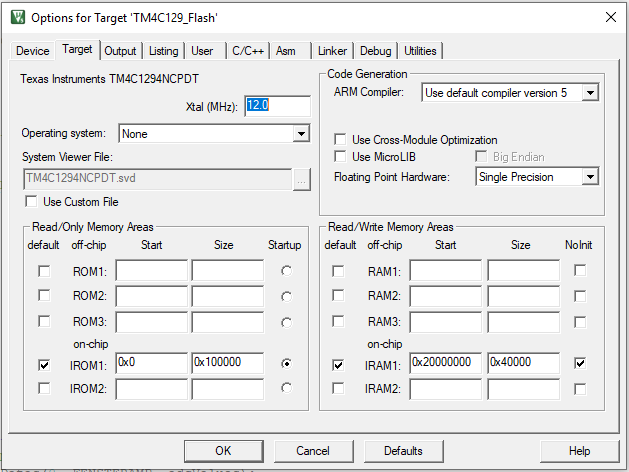art Number: EK-TM4C1294XL
Tool/software: Code Composer Studio
I am using TM4C123GXL and Keil IDE to generate a formula.I had initialized array which has 5000 elements. And I used qsort function from the c library. But when I tried to run this code without qsort , the code is working. (it is working so slow). After I open the qsort function the program is going to an endless loop called hard fault handler and waits at the instruction B and also I can`t able to stop this instruction.
HardFault_Handler\
PROC
EXPORT HardFault_Handler [WEAK]
B .
ENDP
I am attaching my rar file with this. Actually my project is little bit in complete because I had trying to vary the duty cycle for only one signal even though I want 8 PWM's.What I am done here is to just check the first condition and failed to execute want solution.



